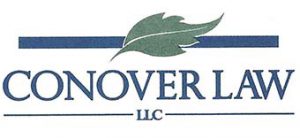Guardianships and Conservatorships
When a person lacks the ability to either manage their medical or financial affairs, or there is a concern with exploitation or other forms of abuse of an Elderly or Disabled person, there may be the need for a Guardian or Conservator to be appointed.
These court-appointed protections may be necessary if the individual has not previously executed Powers of Attorney naming an Agent either for medical or financial decisions, if the previously named Agent is either unwilling or unable to complete the needed actions, or at times, if the named Agent is using the Powers of Attorney to exploit the individual for their own benefit or gain.
Guardianships and conservatorships are designed to protect people; however, they do restrict a person’s right to make decisions for themselves. Accordingly, there are statutory protections in place to ensure the Respondent (person potentially needing protection) has the ability to be involved and represented throughout the process, and to ensure there are no less restrictive means available to provide these protections.
A guardianship gives the guardian the ability to make day-to-day decisions for the person needing assistance. The guardian’s duties include but are not limited to: Choosing a place to live, a doctor to go to, treatment the doctor uses, rehabilitative resources, and other programs used for health, safety, or welfare.
A conservatorship, on the other hand, gives a conservator the ability to make financial decisions for the person needing assistance. The conservator’s duties include, but are not limited to managing financial accounts and other assets, selling assets including property if necessary, paying ongoing bills or meeting other financial obligations,
Appointments for guardian and conservator can also be made on an emergency basis if the Court determines there is a significant concern for the person’s health, safety, or welfare, or if there is a significant risk of ongoing financial exploitation or immediate need for financial resources for the safety of the individual. Again, there are significant protections in place to protect the rights of the individual and be sure these steps are truly necessary for the protection or care needs of the individual.
Following the appointment of either a guardian or conservator the court will remain involved and there are annual reporting requirements as well as the ability to seek intervention if the guardian or conservator is not fulfilling their duties.
Whether you are seeking a guardianship or conservatorship over a family member or loved one, you are the subject of a proceeding, or you have concerns about the actions of a guardian or conservator, the attorney’s at Conover Law have significant experience in the protections and duties involved in these processes.
